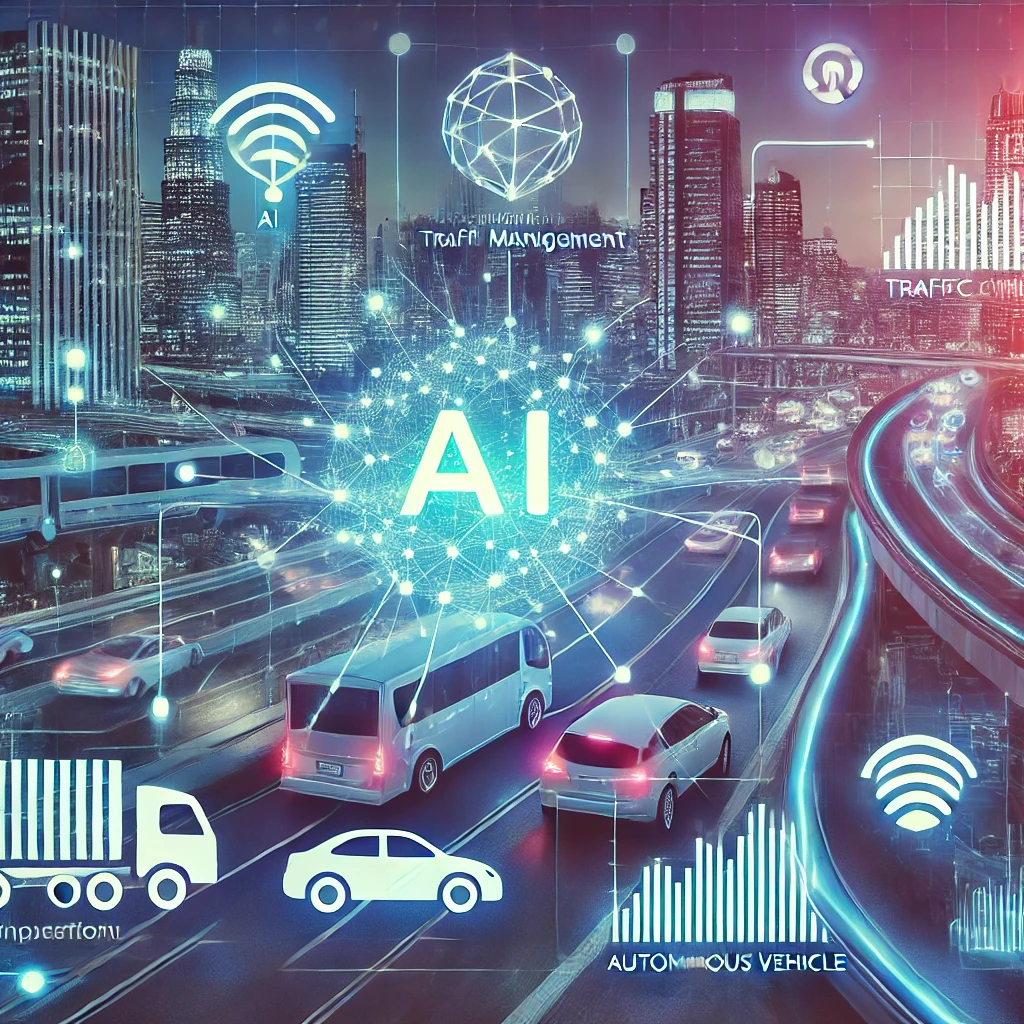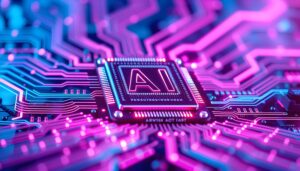
Discover how AI is transforming transportation by improving traffic management, enhancing vehicle automation, and optimizing route planning. Learn how the world isEnhancing Traffic Management and Autonomous Vehicles with AI
Enhancing Traffic Management and Autonomous Vehicles with AI
Artificial Intelligence (AI) is at the forefront of transforming the transportation industry, revolutionizing how we manage traffic, plan routes, and develop autonomous vehicles. With growing urbanization and the increasing demand for efficient transportation systems, AI is providing innovative solutions to reduce congestion, improve road safety, and enhance the overall transportation experience.
AI for Advanced Traffic Management
One of the most significant applications of AI in transportation is in traffic management. Traditional traffic systems rely on fixed signal timings and human intervention, which can lead to inefficiencies and delays.
AI-driven traffic management systems, however, use machine learning algorithms to analyze real-time traffic data from cameras, sensors, and GPS devices. This enables dynamic control of traffic signals, optimizing flow based on current conditions.
For example, AI can adjust signal timings to reduce congestion during peak hours or reroute traffic in case of accidents or road closures. By adapting to changing traffic patterns, AI helps reduce travel times, lower fuel consumption, and decrease emissions. This not only improves the efficiency of transportation systems but also enhances the quality of life for commuters.
Enhancing Route Planning and Navigation with AI
Route planning is another area where AI is making a significant impact. AI-powered navigation systems use real-time data to provide the most efficient routes, taking into account factors such as traffic conditions, road closures, and weather. These systems continuously learn from new data, improving their accuracy and efficiency over time.
In addition to individual navigation, AI can be used for fleet management and logistics. By optimizing delivery routes for trucks and delivery vehicles, AI helps companies reduce fuel costs, improve delivery times, and enhance overall operational efficiency. This is particularly valuable for businesses that rely on timely deliveries and need to minimize transportation costs.
AI in Autonomous Vehicles and Driver Assistance
Autonomous vehicles represent one of the most exciting developments in AI transportation. Self-driving cars use a combination of AI, sensors, and cameras to navigate roads, detect obstacles, and make driving decisions.
Machine learning algorithms process data from the vehicle’s environment to understand and respond to various driving scenarios, such as traffic signals, pedestrians, and other vehicles.
AI is also being used to enhance driver assistance systems in non-autonomous vehicles. Features such as adaptive cruise control, lane-keeping assist, and automatic emergency braking rely on AI to improve road safety and reduce the likelihood of accidents. By continuously monitoring the vehicle’s surroundings and providing real-time feedback, AI-driven driver assistance systems make driving safer and more convenient.
AI in Smart Cities and Public Transportation
Beyond individual vehicles, AI is playing a key role in the development of smart cities and public transportation systems. AI-powered solutions are being used to optimize public transit schedules, predict passenger demand, and manage traffic flow in urban areas.
For instance, AI can analyze data from public transportation networks to identify bottlenecks and recommend changes to improve efficiency.
In smart cities, AI is used to integrate transportation systems with other urban infrastructure, such as energy and communication networks. This integration allows for more coordinated and efficient management of city resources, leading to a more sustainable and connected urban environment.
AI is revolutionizing transportation by enhancing traffic management, optimizing route planning, and advancing autonomous vehicle technology. By leveraging AI-driven systems, transportation networks can become more efficient, safer, and responsive to the needs of commuters.
As AI technology continues to evolve, it will play an increasingly vital role in shaping the future of transportation, from reducing congestion to enabling the development of smart cities and autonomous mobility solutions.
Visit the U.S. Department of Transportatopn (dot) for in-depth resources of how AI will be implemented in the transportation industry. https://www.transportation.gov/AI
Learn more on how AI is transforming the Tech, Healthcare , Business and the world on our website . https://aibrainpowered.com/


